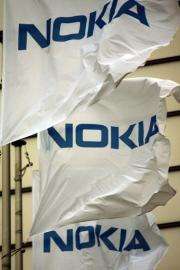Greenpeace praises Nokia, slams Nintendo in 'green' study

Greenpeace panned Nintendo and Toshiba for low environmental standards Wednesday but praised Nokia and Sony Ericsson for recycling, energy efficiency and phasing out hazardous substances.
In its quarterly "Guide to Greener Electronics," released in Tokyo's Akihabara electronics district, the group rates 18 of the world's major consumer electronics companies on their environmental credentials.
It targets elimination of two toxic chemicals in particular -- polyvinyl chloride (PVC) and brominated flame retardants (BRFs) -- because they are long-lasting in the environment and can accumulate in human bodies.
Greenpeace researcher Iza Kruszewska said highly toxic dioxins were released when collectors of electronic waste in developing countries burn PVC cables to recover the copper inside or cook circuit boards in acid to recover gold.
Nintendo, maker of the Wii console, took bottom place, said Kruszewska, who added that the gaming giant was "the only company that has never engaged in dialogue with Greenpeace" among big industry players.
Nintendo declined to comment directly but said that each environmental organisation "asks different questions, which tend to be narrow in focus rather than take into account the bigger picture of wider corporate activity".
"We are committed to reporting on our CSR (corporate social responsibility) performance in an open way that avoids misreporting," the Kyoto-based company said in a statement, urging consumers to visit its website for details.
Toshiba, which makes electronic goods as well as nuclear power plants, dropped from third in December to 14th in the latest ranking.
Toshiba earned penalty points "for breaking its promises that all its consumer electronics products should have been free of PVC and BFRs by April 1 this year", said Kruszewska.
"They are hazardous in their production but even more so in the end-of-life (stage), when products containing these substances are recycled in substandard conditions like we see in China, India," she said.
A Toshiba statement said: "Toshiba will continue to make its utmost efforts to promote replacement of PVC or BFRs for digital products by comprehensively evaluating... performance, cost, productivity and other factors."
Nokia took the top spot and Sony Ericsson came second. Philips was in third place, followed by Motorola in fourth and Apple fifth.
Greenpeace imposed penalty points on Samsung, Dell, Lenovo, LG Electronics and Toshiba, saying they had backtracked on promises.
"Samsung is the first company to get a second penalty point because they not only broke their commitment but failed to give a new timeline for eliminating PVC and BFRs in TVs," Kruszewska said.
She noted that eliminating toxic materials was important as flows of electronic waste from rich countries to poorer countries are hard to stop.
"We are seeing more and more products are rolling out which are free of PVCs and BFRs from companies like HP, Acer and also two Indian brands, Wipro and HCL," she said. Wipro and HCL are not covered in the ranking.
"In general, Japanese companies perform best on energy and weakest on e-waste and chemical criteria," she said. "No Japanese company has launched products completely free of PVC and brominated flame retardants."
(c) 2010 AFP
















